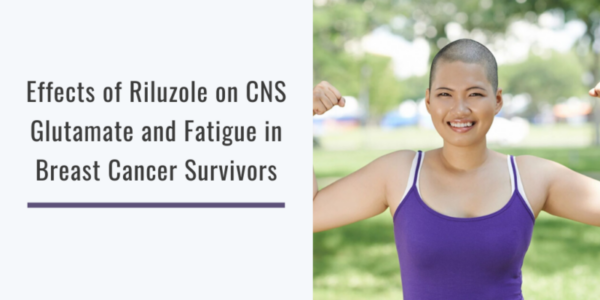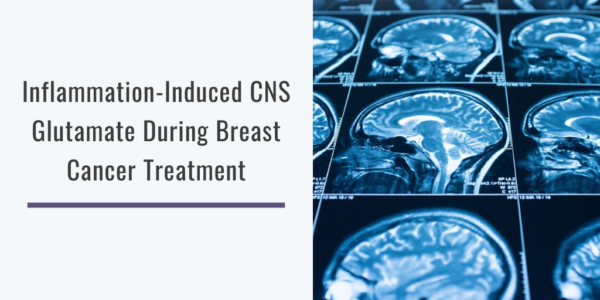Inflammation-Induced CNS Glutamate During Breast Cancer Treatment

Increased inflammation has been implicated in the pathophysiology of a number of neuropsychiatric illnesses including mood disorders, which affect almost 30 million adults in the US alone. One mechanism by which inflammation may alter behavior is through increasing brain glutamate, a neurotransmitter that in excess has been implicated in neuronal toxicity and resistance to conventional antidepressant therapy. The goal of the proposed research is to test the hypothesis that inflammation alters behavior through increasing glutamate in specific brain regions, ultimately leading to behavioral changes. For more information on this study please click here. This study is no longer recruiting.
Effects of Riluzole on CNS Glutamate and Fatigue in Breast Cancer Survivors with High Inflammation

This project is designed to find out if reducing glutamate will restore normal brain function and prevent or treat behavioral problems in breast cancer patients. The study involves a comprehensive 8-week, single-site, double-blind clinical trial of riluzole, an FDA-approved drug that stimulates the reuptake and blocks the release of glutamate. We will conduct brain scanning with brain imaging (magnetic resonance spectroscopy) before, during and after the 8-week trial to select subjects who are most likely to respond to riluzole and to monitor the drug’s efficacy. We will also perform assessments of anxiety, irritability, depression, fatigue, sleep difficulties, and problems with memory and concentration throughout the 8-week trial. Finally, we will obtain protein and genetic markers in peripheral blood to determine predictors of increased glutamate in the brain and the response to riluzole. For more information on this study please click here. This study is no longer recruiting.
Phase II Study of Curcumin vs Placebo for Chemotherapy-Treated Breast Cancer Patients Undergoing Radiotherapy

As many as 60% of BrCA patients receiving radiation are known to develop fatigue with about 30% suffering persistent fatigue several months to years after treatment completion. The nuclear factor-kB (NF-kB) pathway has emerged as having an important role not only in cancer treatment resistance, but also in the development of fatigue. This project will explore the effectiveness of Meriva, a formulation of the natural product curcumin already shown to target NF-kB, to attenuate fatigue in women after treatment for breast cancer. For more information on this study please click here. This study is no longer recruiting.

